Acid Reflux in Babies: What You Need to Know
Baby spit up is about as common as diaper changes. Whether you’re a new parent or have experience in raising little ones, getting acquainted with bodily fluids is just part of the job.
While it’s common for infants to spit up after a meal here and there, frequent vomiting and discomfort could point to something a little more sinister. Reflux in babies, also known as gastroesophageal reflux disease (GERD) may require professional treatment by a doctor and a chiropractor.
Learn all about it GERD in this blog and the important steps to take as a parent.
What is Acid Reflux or GERD?
Gastroesophageal reflux (GER) and gastroesophageal reflux disease (GERD) cause the upward movement of stomach content, which may include stomach acid. This stomach content is moved up through the esophagus and sometimes into the mouth, too. The difference between the two conditions is defined by the severity and frequency of reflux and vomiting in children.
Most infants experience acid reflux or GER in the first year of life and usually outgrow it around the 24-month mark. However, if symptoms persist for longer than this, your child could be suffering from GERD.
The Causes of Acid Reflux in Babies
The development of this condition is linked to a poorly coordinated gastrointestinal tract. GER and GERD are most often associated with an infant’s immature digestive system which has not quite developed. In rare instances, infants with problems affecting nerves, brain function, and muscles can also develop GERD.
Common Symptoms to Watch For
If your infant struggles with acid reflux past their second birthday, it could point to the more serious condition, GERD. Here are the most common signs to look for:
- A refusal to eat
- Difficulty eating or swallowing
- Wet burps and wet hiccups
- Failure to maintain or gain weight
- Abnormal arching of the back
- Frequent coughing or recurrent bouts of pneumonia
- Gagging or choking
- Disturbed sleep
Bear in mind that acid reflux or GER usually peaks at the age of 4-months in infants. It should begin to resolve itself by 12-18 months. Any persistent symptoms after this may require medical diagnosis and care.
Acid Reflux Treatment and Feeding
Most infants may not require any medical treatment for acid reflux. However, there are few things you can do as a parent to manage the condition. Some of these steps include:
- Smaller, more frequent feedings
- Burp your baby during feedings to help facilitate the process
- Make sure to hold your baby upright for 20-30 minutes after each feed, avoid laying them down
- If not breastfeeding, consider changing the type of formula for feeding
- Use a different size nipple on feeding bottles to prevent your baby from swallowing air
It may also be wise for mothers to eliminate dairy products, eggs, and beef from their diets while breastfeeding. This is a good way to rule out whether your baby has an allergy to these foods. You can also add rice cereal to formula or breast milk to thicken it slightly to assist with feeding. However, this should be done in very small amounts.
How Chiropractic Care Can Help with GERD
No matter how old you are, the body’s system needs to be able to communicate effectively in order to function. Spinal misalignment in infants and children cause nerve interference that affects this communication system. This can cause health problems such as GERD due to spinal misalignments near the stomach and esophagus.
Chiropractic care helps to gently realign the spine, correcting misalignments and restoring the body’s full ability to function. This could lead to a major reduction in GERD symptoms and even full recovery. If your baby is experiencing signs of GERD or acid reflux, please reach out to us.
Find Professional Infant Care with Amazing Life Chiropractic
Reflux in babies can be a harrowing experience as a parent. If you need professional care, Amazing Life Chiropractic is here to help.
We offer a full examination, gentle spinal realignment, as well as massage therapy, expert nutritional advice, and more. We’re conveniently located in Mill Creek, WA. Call us at (425) 737-5343 or fill out the form below to schedule your appointment.




